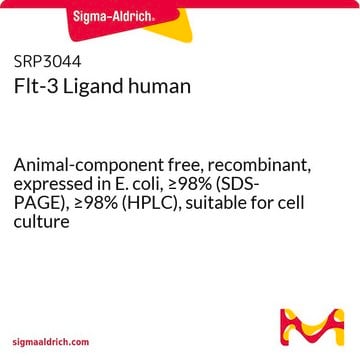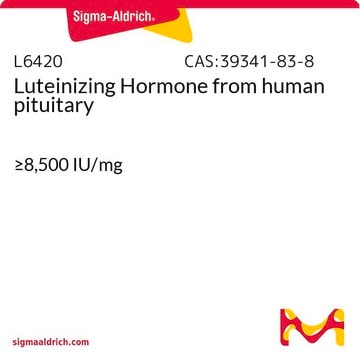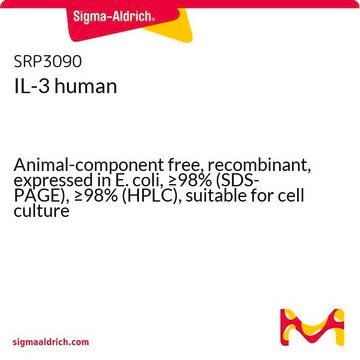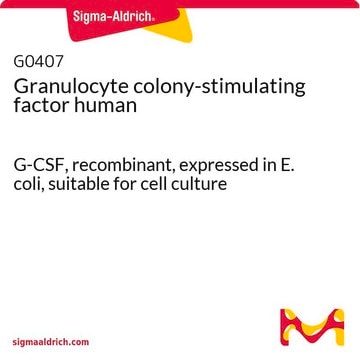S7901
Stem Cell Factor human
>97% (SDS-PAGE), recombinant, expressed in E. coli, powder, cell culture | mammalian: suitable
Synonym(s):
SCF, c-Kit ligand
About This Item
Recommended Products
product name
Stem Cell Factor human, SCF, recombinant, expressed in E. coli, powder, suitable for cell culture
biological source
human
Quality Level
recombinant
expressed in E. coli
Assay
>97% (SDS-PAGE)
form
powder
potency
1-5 ng/mL ED50
quality
endotoxin tested
mol wt
protein 18.5 kDa
packaging
pkg of 10 μg
pkg of 50 μg
storage condition
avoid repeated freeze/thaw cycles
technique(s)
cell culture | mammalian: suitable
impurities
<1 EU/μgtested (LAL test)
UniProt accession no.
storage temp.
−20°C
Gene Information
human ... KITLG(4254)
Looking for similar products? Visit Product Comparison Guide
Application
- In vitro differentiation of equine embryonic stem cells
- Chemotaxis detection system
- Ex vivo expansion of umbilical cord blood CD34+ cells
- Cytokine therapy
Biochem/physiol Actions
Physical form
Analysis Note
Storage Class Code
11 - Combustible Solids
WGK
WGK 3
Flash Point(F)
Not applicable
Flash Point(C)
Not applicable
Personal Protective Equipment
Certificates of Analysis (COA)
Search for Certificates of Analysis (COA) by entering the products Lot/Batch Number. Lot and Batch Numbers can be found on a product’s label following the words ‘Lot’ or ‘Batch’.
Already Own This Product?
Find documentation for the products that you have recently purchased in the Document Library.
Customers Also Viewed
Articles
Read article on hematopoietic cytokines and hematopoiesis
Protocols
Stem cell reprogramming protocols to generate human induced pluripotent stem cells (iPSCs) including viral and non-viral RNA based methods.
Our team of scientists has experience in all areas of research including Life Science, Material Science, Chemical Synthesis, Chromatography, Analytical and many others.
Contact Technical Service









